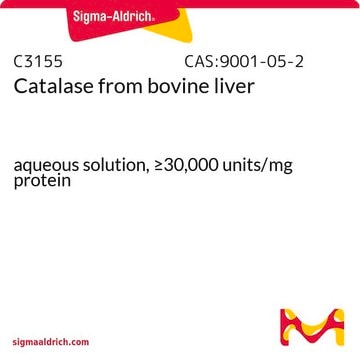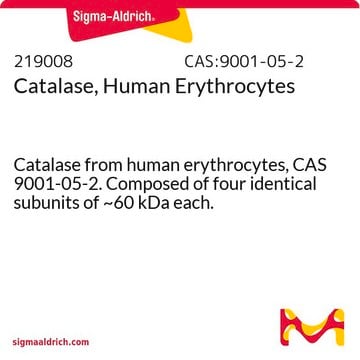C4963
Catalase−polyethylene glycol
lyophilized powder, ~40,000 units/mg protein
Sinónimos:
PEG-Catalase
About This Item
Productos recomendados
form
lyophilized powder
Quality Level
specific activity
~40,000 units/mg protein
mol wt
PEG 5,000
composition
Protein, ~50% E405
extent of labeling
~40 mol PEG per mol protein
matrix attachment
secondary amine linkage.
storage temp.
−20°C
¿Está buscando productos similares? Visita Guía de comparación de productos
Application
Biochem/physiol Actions
Packaging
Other Notes
Physical form
Storage Class
11 - Combustible Solids
wgk_germany
WGK 3
flash_point_f
Not applicable
flash_point_c
Not applicable
ppe
Eyeshields, Gloves, type N95 (US)
Certificados de análisis (COA)
Busque Certificados de análisis (COA) introduciendo el número de lote del producto. Los números de lote se encuentran en la etiqueta del producto después de las palabras «Lot» o «Batch»
¿Ya tiene este producto?
Encuentre la documentación para los productos que ha comprado recientemente en la Biblioteca de documentos.
Los clientes también vieron
Nuestro equipo de científicos tiene experiencia en todas las áreas de investigación: Ciencias de la vida, Ciencia de los materiales, Síntesis química, Cromatografía, Analítica y muchas otras.
Póngase en contacto con el Servicio técnico










